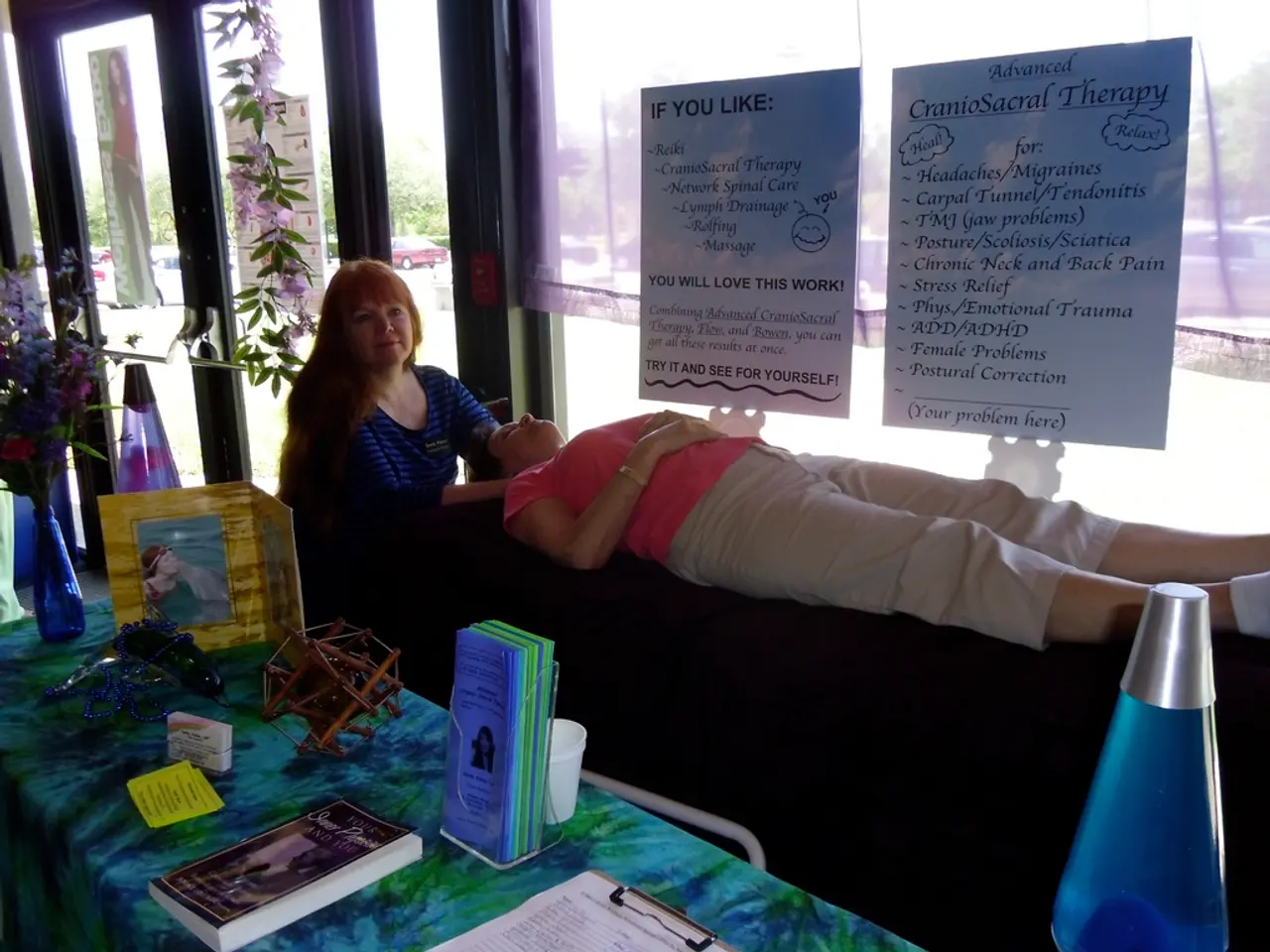Guiding Through Postoperative Pain Relief During Rehabilitation
Post-surgery rehabilitation is a critical period for patients, and effective pain management plays a crucial role in ensuring a smooth recovery. This process involves a combination of medication, physical therapy, alternative therapies, and lifestyle modifications tailored to the patient's needs and surgery type.
Medication
Physicians typically prescribe a graduated pain medication regimen, starting from stronger analgesics (sometimes including nerve blocks during surgery) and tapering down to over-the-counter options like acetaminophen or NSAIDs as healing progresses. Opioid-sparing strategies are increasingly emphasized to reduce addiction risk, incorporating non-opioid analgesics, topical agents, injections, steroids, and antidepressants as appropriate. It is essential to adhere to the prescribed schedule and communicate with medical providers regarding side effects or pain changes to optimize therapy.
Physical Therapy
Customized physical therapy programs help maintain mobility, improve flexibility, strengthen muscles, and prevent stiffness while protecting the surgical site. Gentle stretching and gradual reintroduction of movement support circulation and functional recovery without stressing healing tissue. Techniques like transcutaneous electrical nerve stimulation (TENS) are often integrated within physical therapy to provide supplementary pain relief.
Alternative Therapies
Complementary approaches such as cold therapy (cryotherapy with ice packs or cold chambers), massage, acupuncture, chiropractic care, and relaxation exercises contribute to pain reduction and improved comfort. Cognitive behavioral therapy (CBT) and other psychotherapies address the psychological aspects of post-surgical pain, aiding stress management and coping skills. These alternative modalities are generally most effective when combined with conventional pain management rather than used in isolation.
Lifestyle Modifications
Balancing adequate rest with gradual activity prevents complications such as muscle weakness and blood clots, promoting healing. Following ergonomic advice on posture, safe sitting, standing, and sleeping positions helps maintain alignment and minimize discomfort during recovery. Stress management and mental health support are important, especially to prevent or address chronic pain and its impacts on quality of life.
In summary, effective post-surgerical pain management is multimodal, incorporating medications managed by healthcare providers alongside physical therapy, complementary treatments, and lifestyle adjustments to optimize recovery, reduce pain, and prevent complications. Multidisciplinary programs such as Enhanced Recovery After Surgery (ERAS) implement these strategies in an integrated fashion to improve outcomes. For more information on post-surgery rehabilitation and pain management, consider consulting professional healthcare practitioners that specialize in this area.
[1] National Institutes of Health. (2020). Postoperative pain management: Best practices. Retrieved from https://www.nih.gov/news-events/nih-research-matters/postoperative-pain-management-best-practices
[2] American Society of Anaesthesiologists. (2018). Enhanced recovery after surgery (ERAS): What is it and why does it matter? Retrieved from https://www.asahq.org/resources/enhanced-recovery-after-surgery-eras-what-is-it-and-why-does-it-matter
[3] World Health Organization. (2016). WHO guideline: Core interventions for the prevention and treatment of postoperative intravenous opioid use in adult patients in the acute care setting. Retrieved from https://www.who.int/publications/i/item/9789241514438
[4] Cochrane Database of Systematic Reviews. (2019). Enhanced recovery programmes for major surgery. Retrieved from https://www.cochranelibrary.com/cdsr/doi/10.1002/14651858.CD007060.pub3/full
[5] National Center for Complementary and Integrative Health. (2019). Complementary health approaches for managing pain. Retrieved from https://www.nccih.nih.gov/health/complementary-health-approaches-for-managing-pain
- Science and health-and-wellness are intertwined in post-surgery rehabilitation, as evidence-based multimodal pain management approaches are developed through rigorous research to optimize recovery and reduce pain.
- Fitness-and-exercise, mental-health, and alternative therapies play essential roles in post-surgery rehabilitation, with lifestyle adjustments, psychotherapies, and complementary treatments promoting pain reduction, stress management, and overall well-being.




